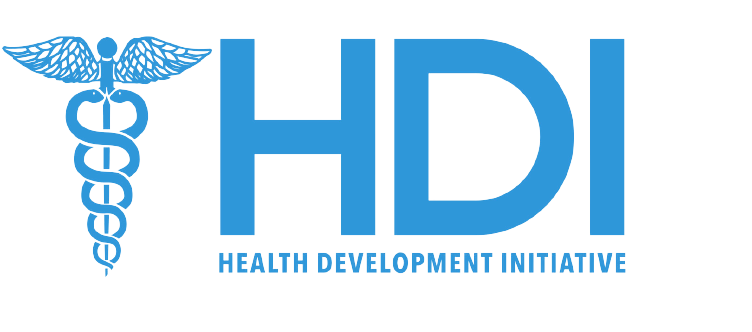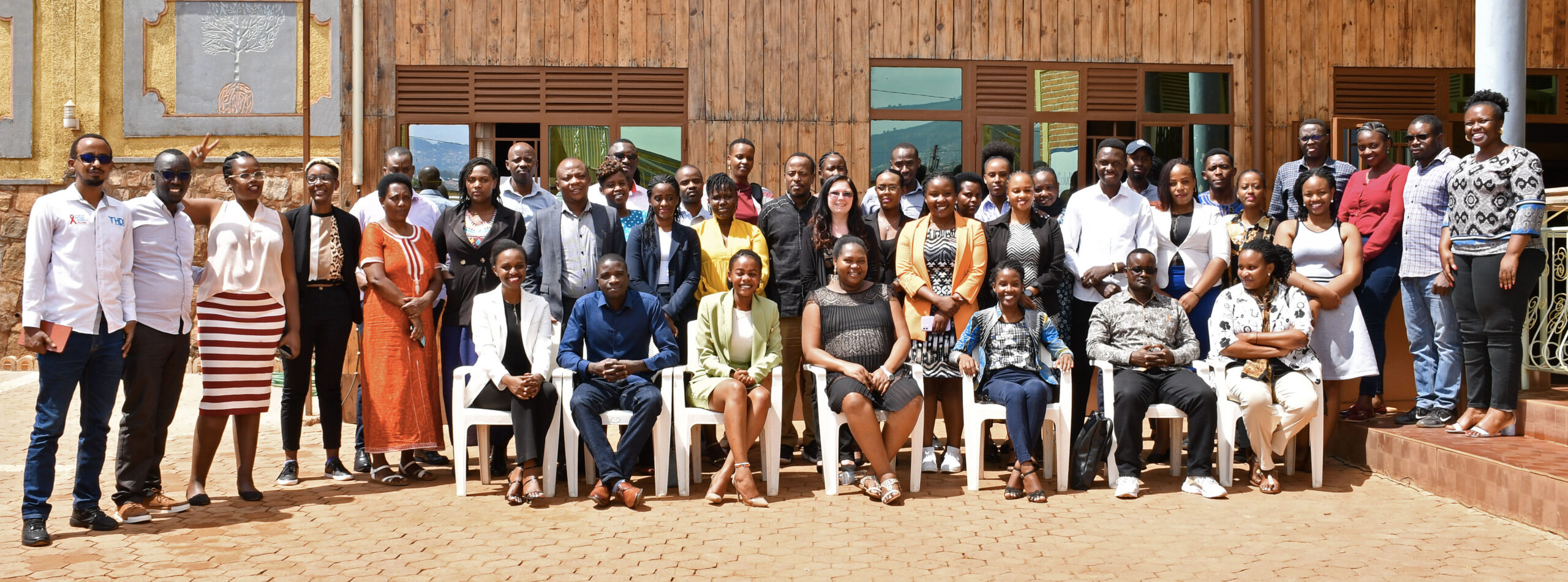Get To Know Us!
Health Development Initiative (HDI) is an independent, non-profit organization based in Kigali and registered with the Rwandan government. HDI strives to promote access to health and human rights with particular focus on sexual and reproductive health and rights, as well as inclusive development for disadvantaged communities. HDI was founded in 2005 by a dedicated group of Rwandan physicians working in health facilities and communities across the country. This diverse group of health professionals was united by a shared commitment to improve the health of disadvantaged communities within and outside of the healthcare system.
Today, HDI brings together a team with vast experience in public health, human rights, policy advocacy, strategic litigation, communications, M&E, research and community development to bridge the gap between communities and the healthcare system.
Our Areas of Intervention
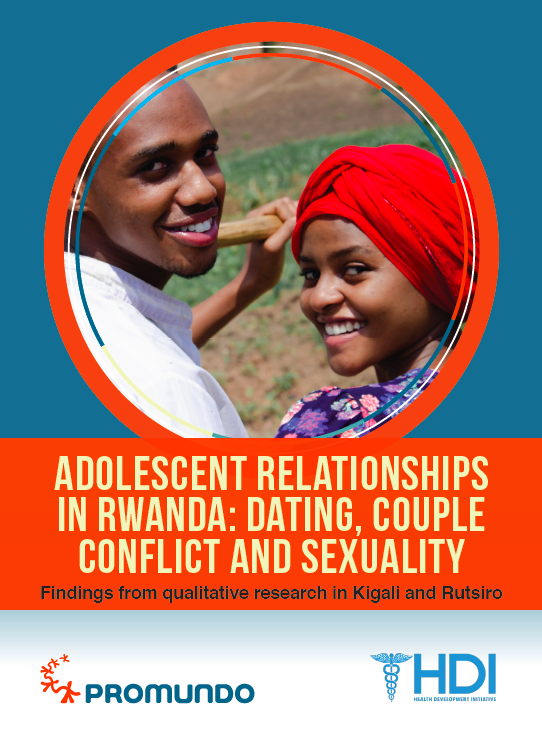
Research and Advocacy Programs
Advocacy for change cannot be successful without evidence. Since its establishment, HDI has used research to form the foundation of initiatives related to decriminalizing sex work, expanding access to safe abortion information and services, and addressing barriers to adolescent access to SRHR information and services, among others.
HDI works in partnership with different institutions including higher institutions of learning and international organizations such as the African Population and Health Research Center (APHRC), UNFPA and JHPIEGO to develop advocacy materials including policy briefs, position papers and other research initiatives. This research helps us to generate evidence which propels our advocacy work forward in tailoring interventions to the needs of target rights-holders.
Past Research Initiatives:
Some of the most recent HDI research initiatives include conducting research on the lived experiences of the LGBTQIA+ community in Rwanda, which will bolster support for anti-discrimination efforts and provision of stigma-free services.
Other past research initiatives include:
- Parents’ Knowledge, Attitude and Practices (KAP) Towards Comprehensive Sexuality Education in Secondary Schools in Rwanda
- Situation of Female Sex Workers and LGBTI Persons in Rwanda
- Health Care Counsellors’ Perceptions and Attitudes Toward Safe Abortion in Rwanda
- Capacity needs assessment for CSOs in the justice and human rights sector
- Adolescent Relationships in Rwanda: Dating, Couple Conflict and Sexuality
Ongoing Research Initiatives:
- GBV- Cross-Sectional Study on Domestic Violence and Mental Health of domestic workers in Rwanda
- HDI, working closely with the Ministry of Health and Global Health Corps (GHC), is conducting a study of gaps in the laws and policies related to health.
- We are also conducting research to explore gender and power dynamics within adolescent relationships and how those influence SRHR
Advocacy:
Our advocacy work includes research, campaigning, litigation, outreach and awareness raising among duty bearers and rights holders. We also train and build the capacity of civil society partners to be able to effectively advocate for law and policy change.
HDI uses litigation as a means to advance SRHR, including 4 cases litigated at the Intermediate, Supreme and Regional Courts in recent years:
- Assisted Reproductive Technology
- Infanticide
- Task shifting in relation to abortion
- Challenging regional laws on LGBTQ rights
Policy Briefs:
- Expanding adolescent and youth access to sexual and reproductive health services in Rwanda
- Safeguarding the Sexual and Reproductive Health and Rights of Women and Girls through the Penal Code Amendment
- Protecting the Health and Rights of Vulnerable Women Engaged in Sex Work
- Addressing the Legal and Policy Challenges to Adolescents’ Access to Sexual and Reproductive Health Information and Services in Rwanda
Shadow Reports:
- Situation of Female Sex Workers and LGBTI Persons in Rwanda
- Shadow Report to the Fifth Periodic Report of Rwanda to the Committee on Economic, Social and Cultural and Cultural Rights
Successful Advocacy:
In recent years, our advocacy has led to considerable achievements, including:
- The removal of the court order requirement for accessing safe abortion
- The inclusion of defilement as a condition for accessing safe abortion
- The decriminalization of sex work
Ongoing Advocacy:
- Efforts to address the parental consent requirement for adolescents accessing SRH services
- Efforts to remove the transfer requirement for vulnerable women and girls seeking safe abortion using Community-Based Insurance Scheme (Mutuelle de Santé)
- Efforts to propose the review of laws and policies to recognize LGBTI rights, gender inclusion, and the regulation of IVF and surrogacy.
Movement Building
HDI recognizes the critical role CSOs play in policy development and the importance of CSOs working in coalition. HDI, in coalition with other CSOs, is currently jointly advocating for several issues, including the removal of barriers to adolescent access to contraceptives.
HDI has supported civil society organizations with capacity building and empowerment in, among others:
- Policy advocacy
- Strategic communication
- Resource mobilization
- Human rights based programming
Since 2007, HDI has supported and empowered over 150 CSOs in Rwanda. In evidence-based advocacy and effective participation in public policy formulation alone, HDI has led training sessions for more than 60 CSOs. Those CSOs have been trained and supported to join various technical working groups in the Ministry of Justice including Justice, Reconciliation, Law and Order Sector (JRLOS). By being active in JRLOS, these CSOs’ voices have been amplified in terms of advocacy and policy influence.
In addition to training, HDI sub-grants selected emerging CBOs and CSOs as a way of expediting their participation in SRHR related activities.
We work in coalition with partners, through the Reproductive Health Coalition, to conduct legal and policy advocacy to address barriers to the fulfilment of SRH rights, particularly for under-served populations such as sex workers, people with disabilities, LGBTI groups, people who use drugs, women & girls, and adolescents, among others. HDI assists with case collection and selection, pro-bono legal representation & assistance in court, human rights public awareness campaigns and submission of petitions in public interest cases. Additionally, HDI leads coalitions of partners to submit Shadow Reports and to participate in international human rights mechanisms.
HDI practices Strategic Impact Litigation and Legal Aid. For example, we give legal advice on issues related to human rights, paternity presumption, medical negligence, child registration.
Media Engagement
Additionally, since 2016 we have organized the Annual Reproductive Health Journalism Awards (est. 2016) to recognize outstanding coverage by journalists on reproductive health in Rwanda. The main intent of these awards is to encourage media practitioners to raise more awareness about reproductive health issues, especially those that are often considered taboo in our society. Currently, Rwandan media outlets shy away from accepting pitches related to topics such as safe abortion, gender-based violence (GBV), family planning and sexual health, among others. This leads to a cyclical issue of lack of public awareness due to inadequate exposure to these topics from respected platforms. The first edition (2016) attracted 15 submissions from 11 media houses; while the most recent edition (2022) attracted 191 submissions from 63 media houses nation-wide.
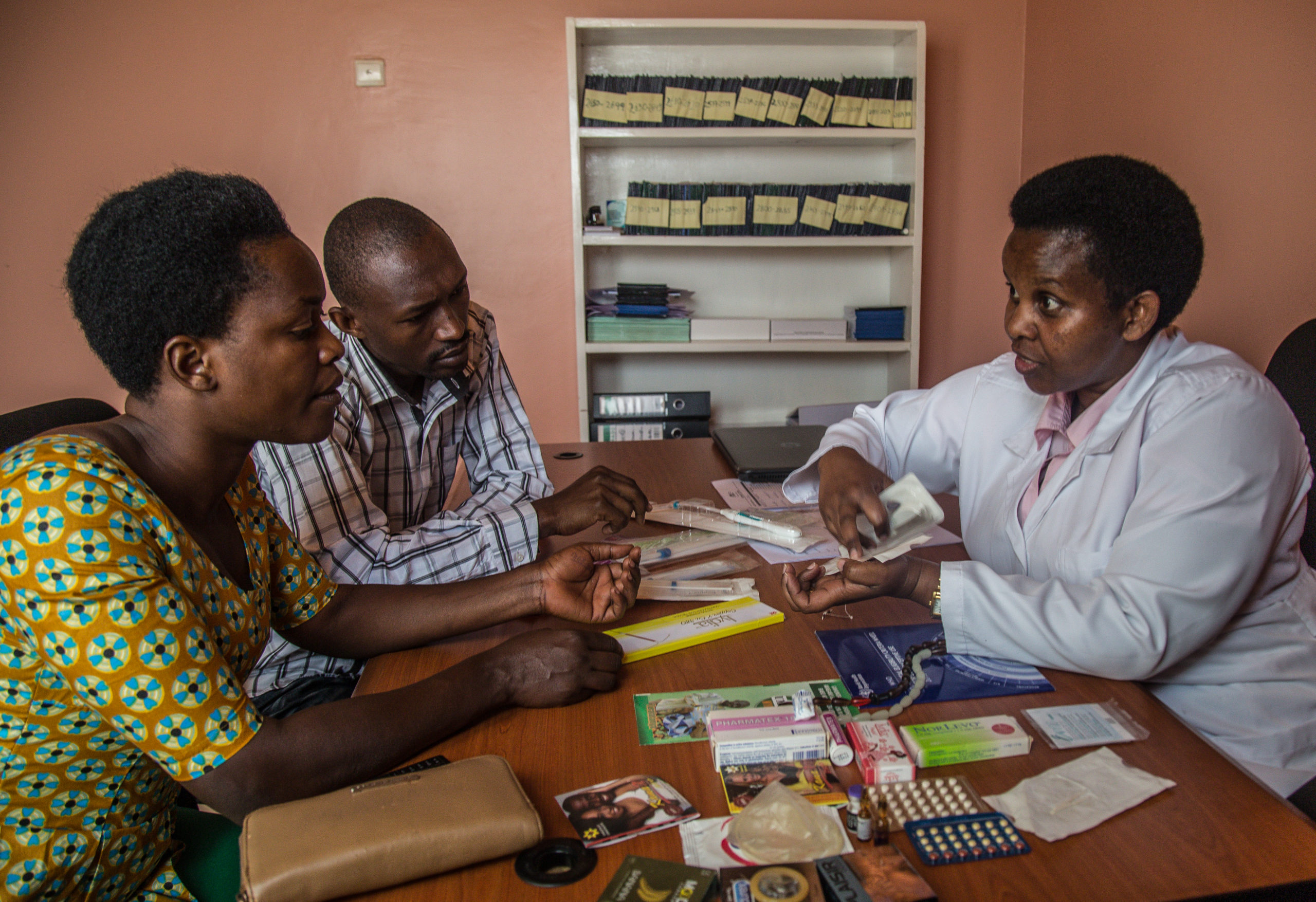
Sexual and Reproductive Health
HDI works hand-in-hand with those most in need to increase access to SRHR information and care. We empower and mobilize adolescents and young people with comprehensive sexuality education so that they can know and claim their rights. We also support women and girls in navigating access to information and services on family planning and safe abortion. We provide rights-based HIV services and education, and we work to transform the mindsets of current and future health professionals by equipping them with skills and knowledge to provide comprehensive, respectful and rights-based care.
Programs
Center for Health and Rights
At HDI, we engage, mobilize and build the capacity of both duty-bearers and rights-holders. These include:
- Women and girls
- Adolescents, young people and parents
- Teen mothers
- Key Populations (those most at risk of contracting HIV/AIDS): sex workers, men who have sex with men (MSM) and people who use drugs
- The LGBTI community
- Health and legal professionals
- Civil Society Organizations (CSOs)
- Faith-based organizations (FBOs) and religious groups
- Government institutions, legislators, local leaders & policy makers
- Law enforcement officers & the judiciary
- The media
- Teachers, students & institutions of learning
- Domestic workers
- Members of the general community
- Prisoners
- Refugees
- People with disabilities
HDI’s SRHR clinics and outreach services are invaluable to our work and to the vulnerable and marginalized populations we serve. The pandemic underscored why it is so important for HDI to provide, and even to expand, our clinical services. The beneficiaries we serve are mostly those who feel they have nowhere else to turn for SRH services. Our clinics also provide support to those experiencing gender-based violence.
- Our Kicukiro clinic is a general clinic for those seeking SRHR services and information.
- Our Nyakabanda clinic is specialized in serving key populations (e.g. LGBTIQ+ individuals, people living with HIV, sex workers, and people who use drugs). The staff at our clinics are trained to provide stigma-free services and are welcoming of marginalized groups. However, we also receive many other clients, such as vulnerable groups like teenage mothers, domestic workers and adolescents, who know that HDI provides quality services free of discrimination.
We partner with other organizations to be able to refer clients to services that we do not offer. The surge in clients seeking services at our two Centers for Health and Rights exceeded our plans, and reflects the ongoing need for high-quality, respectful SRH care.
Our adolescent programming actively supports youth in a variety of ways. Through this programming, we have generated valuable data about adolescent SRHR challenges since 2008. We use this data and our platform as a trusted community organization to:
- Leverage access to information through educational school visits, our hotline, and mainstream and social media platforms to target adolescents and young people on various SRHR issues. To achieve this, we work with popular radio stations like KISS FM and Isango Star, as well as social media platforms including Twitter, Instagram and Facebook to host adolescent-focused programming. In particular, we host a popular educational series on YouTube called Ingamba.
- Build Networks: We also seek out passionate and motivated adolescents who show interest in SRHR issues through partnerships with schools, youth organizations, community centers, and offer workshops and mentorship programs to enhance their understanding and capabilities. We partner with adolescents to create safe and inclusive advocacy spaces where adolescents can come together, share experiences, and collaborate. These include the annual adolescent conference and the SRH student clubs formed in schools all over the country to encourage open dialogue, respect diverse opinions, and provide opportunities for networking and peer support.
- Encourage Advocacy and Action: We empower adolescent champions to become advocates for SRHR within their communities and support them in designing and implementing local initiatives, awareness campaigns, or projects that address SRHR challenges.
HDI sensitizes healthcare providers on the legal framework on abortion. Many healthcare providers lack information on the laws around safe abortion and hold conservative religious views on abortion, thus inadvertently (and sometimes intentionally) interfering with women’s legal right to abortion. To address this issue, HDI has been conducting nationwide campaigns to raise awareness on the legal framework on abortion among both beneficiaries and duty bearers.
We also engage public and private health facilities, healthcare providers, the media, legal practitioners, women’s rights organizations, Rwanda Investigation Bureau (RIB), Isange One-Stop Center (an outpatient department service designed for delivering care to victims of gender-based violence; typically stationed at government-run health facilities)
HDI supports individuals seeking safe abortion with:
- Free, safe pre- and post- abortion counseling
- Legal and medical counseling and care for vulnerable women and girls seeking safe abortion
- Referrals, linkage and orientation to health facilities for care and treatment
- Legal aid around safe abortion services
- Accompaniment to health facilities, provision of transportation, and financial aid to vulnerable women who are unable to afford services on their own
- Information about eligibility for abortion services, and guidance through each step of the abortion journey through HDI’s Center for Health and Rights Call Center
- Information related to the Ministerial Order on Safe Abortion
Since 2018, HDI has supported over 3,000 women and girls to exercise their right to safe abortion.
HDI implements fertility awareness methods (FAM) – a strategy that couples can use to prevent pregnancy which involves tracking a woman’s fertility and menstrual cycle, developing a better awareness of women’s body and use of a variety of non-pharmaceutical methods to detect ovulation.
In partnership with USAID, HDI is currently engaged in the Fertility Awareness Method (FAM) project. The project’s objectives are to:
- Expand the use of self-administered family planning methods
- To engage local faith-based organizations (FBOs) in enhancing access, quality, and equity to a full range of post-partum family planning (PPFP) methods for all women delivering in the targeted FBO facilities.
- Improve organizational and technical capacity and performance of HDI
Every year, HDI leads numerous outreach campaigns to promote HIV testing, adherence to antiretroviral drug (ARV) schedules, and to address misconceptions in the community regarding HIV/AIDS. These outreach campaigns reach thousands of beneficiaries at a time and provide a safe space for beneficiaries to get tested for HIV and STIs.
- Since 2007, HDI has tested over 75,000 beneficiaries for HIV/AIDS.
- For the last 6 years, HDI has been training and supporting peer educators of female sex workers and LGBTQIA+ particularly in HIV prevention.
- In order to combat HIV/AIDS among key populations, HDI has implemented several projects targeting key populations on HIV including increasing access to quality and stigma-free HIV and TB services for key and priority populations.
- Through the Center for Health and Rights HDI offers confidential, stigma-free testing for HIV/AIDS and STIs.
- HDI strives to help the Rwandan health care system overcome major barriers to HIV/ AIDS service uptake, including social exclusion, marginalization, criminalization, and stigma of key populations.
- HDI offers the following HIV/AIDS-related services in-house:
- Screening
- Education and Awareness
- Pre-Exposure Prophylaxis [PrEP]
- Psycho-social support for those affected
HDI believes that in order to have the greatest impact on the future of SRHR, sensitization on stigma-free, non-discriminatory healthcare must begin with the newest generation of healthcare providers. HDI trains healthcare providers on:
- The importance of providing stigma-free services to women and girls and Key Populations
- The Ministerial Order on Abortion & laws determining offenses and penalties in general
- Pre- and post-abortion care
- Family planning
- Value Clarification and Attitude Transformation (VCAT) training
HDI collaborates with different institutions such as:
- Rwanda Medical Students for Choice
- Rwanda Medical Doctors for Choice
- Medical Students’ Association of Rwanda
- Rwanda Society for Obstetricians and Gynecologists
- Ministry of Health, Rwanda Biomedical Center
- Rwanda Association of Midwives
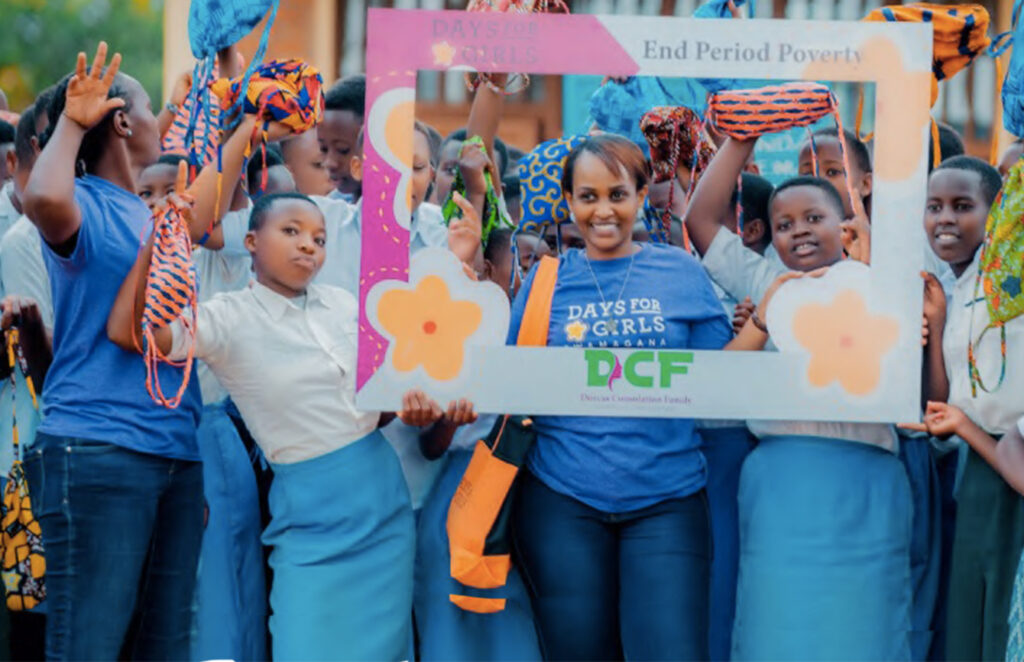
Gender Equality
HDI pursues activities related to the fight for gender equality, positive masculinity, the fight against gender-based violence, and efforts to mainstream gender in all areas of life. In particular, HDI conducts campaigns and sensitization meetings, which mobilize young men and women, faith leaders, the media, and other critical actors to promote gender justice and prevent gender-based violence on and offline. These projects also engage policy makers in order to promote the creation of policies and laws that are gender-transformative.
In addition to sensitizing faith leaders, HDI takes pride in its work to empower feminist and women-led organization to actively join and participate in the broader SRHR movement. These organizations are encouraged and equipped to register and advocate on issues that affect them.
The GBV Advocacy Strategy was developed by HDI under the Momentum Country and Global Leadership project. It outlines emerging advocacy issues related to Gender-Based Violence (GBV) and provides strategic advocacy actions to create a more enabling environment for gender equality in Rwanda.
Objectives:
- The Promote evidence generation to inform GBV comprehensive GBV response and advocacy mechanisms
- Strengthen partnerships and development to influence the design and formulation of inclusive GBV policies and legal framework
- Enhanced gender-equitable enabling environment
The ultimate goal of the GBV Advocacy Strategy is to provide a framework for HDI to identify the drivers of GBV and outline measures towards the development and implementation of policies, service delivery models, and community engagement efforts that will facilitate the prevention of GBV and the provision of comprehensive responses to GBV in Rwanda.
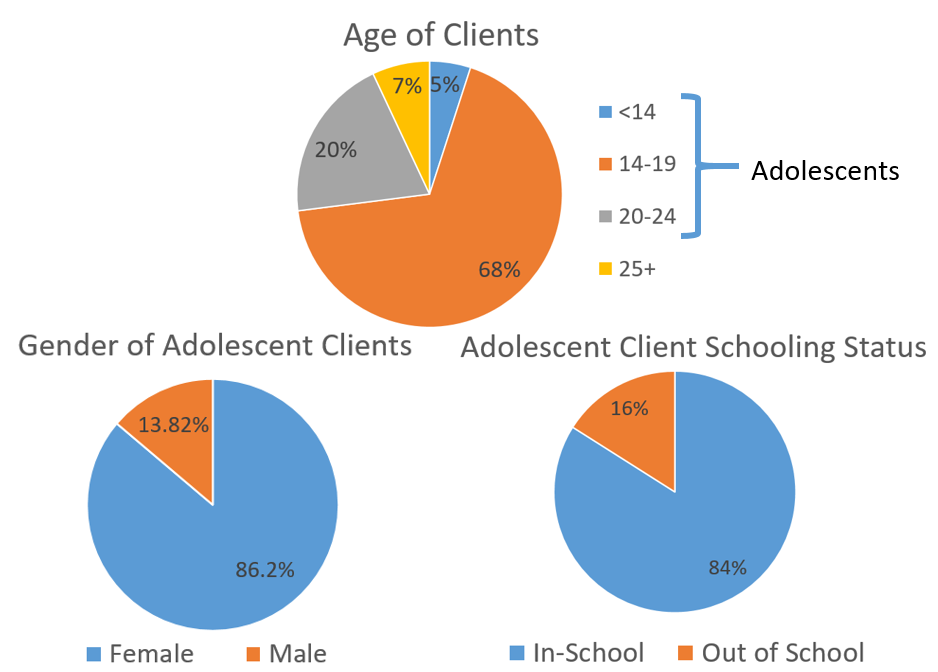
HDI Call Center
One of HDI’s most consistent and successful ways of reaching clients with accurate information and referrals to services has been our Call Center (3530), a branch of the Center for Health and Rights. The Call Center is accessible between 8am-10pm daily, and it’s primary objectives are to provide comprehensive SRH information, offer counseling services, and facilitate linkage to relevant service providers. Because of this aim, the Center ensures that even clients living in the most remote areas have accessible, accurate SRHR information.
The Call Center has experienced a dramatic growth in callers over time. Since its establishment in 2016, The Call Center has received over 120,000 clients requesting information and/or referrals for services. Since its expansion in 2023, the Center has experienced an average of 300 calls per day. In 2022 alone, 48,632 total calls were answered by Center staff. By comparison, the total number of answered calls between January-June 2023 was 42,922.
The Call Center is also an effective mechanism for generating data and testimonies, which inform HDI’s advocacy initiatives and training materials. Please see the infographics for more details.
- Where can I get emergency contraceptive pills? When should I take them?
- How can I prevent sexually transmitted infections (STIs)?
- How can I get tested for STIs and HIV?
- Why am I experiencing wet dreams? Are they normal?
- How long does it take to know if you’re pregnant after having unprotected sex?
- Do I get my period when I’m pregnant?
- Where can I get a pregnancy test?
- What is my fertility window?
- Who is eligible to get safe abortion services?
- Where can I get safe abortion services?
- Is it mandatory to have sex when you are in a relationship?
- What happens if a condom gets stuck? What if I’m allergic to latex? Is sex going to feel good with a condom?
- How do I prepare for my first period?
- What products should I use for my period? How often should I change them?
- How do you know if you’re straight?
- How often should I go to antenatal care visits? What should I eat during pregnancy? Am I allowed to have sex when I’m pregnant? Is it going to be comfortable?
- How do you know if you’ve been harassed? Where can I report GBV?
- Where can I get SRHR services without parental consent?
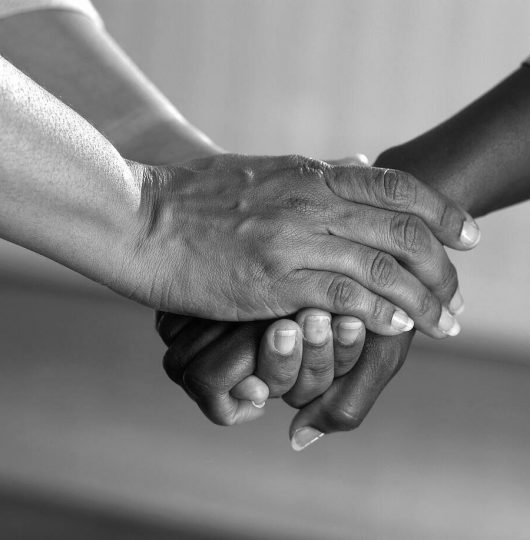
Human Rights
HDI works towards equipping duty bearers and rights-holders [including individuals and communities], and particularly marginalized groups, with knowledge and skills to advocate for their human rights. We also build the capacity of duty bearers to respect, protect and fulfill their obligations in accordance with the Constitution of Rwanda, as well as regional and international human rights instruments ratified by Rwanda. Our work on human rights includes the right to health, but also facilitating access to justice through legal aid and legal advice to our rights holders. At the heart of this work, our advocacy strategy is two-fold– Policy and Legal. we continue to strengthen our advocacy towards the realization of friendly policy and laws in regards to the rights of women, young people, people with disabilities, key populations, LGBTI persons, and other marginalized groups. HDI recognizes that discrimination, stigma, and restrictive policies are key drivers of continued poor health outcomes.
Programs
As a direct result of HDI’s advocacy, the Government of Rwanda decriminalized sex work and same-sex relationships. This was a huge step forward in the fight to reduce stigma and discrimination, which would otherwise hinder access to healthcare and treatment. Now, the challenge has become empowering members of the LGBTI community and female sex workers to understand their rights and sensitizing healthcare professionals and law enforcement officers (among others) to uphold their rights. Although same-sex relationships and sex work are now decriminalized, the majority of the Rwandans view same-sex relations and sex work as immoral – which negatively influences implementation of laws and policies, decision making processes, and provision of services for these groups. In addition to continuous advocacy to improve, clarify and harmonize policies and laws for these groups, HDI has worked to improve health services specifically geared toward both LGBTI people and female sex workers and their sexual and reproductive health needs, by providing HIV/AIDS counselling and treatment, legal aid, and stigma-free healthcare services through our Center for Health and Rights.
HDI delivers facility-based empowerment training of health professionals and support staff from both private and public health facilities. HDI builds capacity on laws and policies in regards to delivering stigma-free, non-discriminatory health services. The outcomes of these initiatives are:
- Risk-reduction of medical negligence
- Increased healthcare systems resiliency and equity
- Improvement of doctor-patient communication and trust
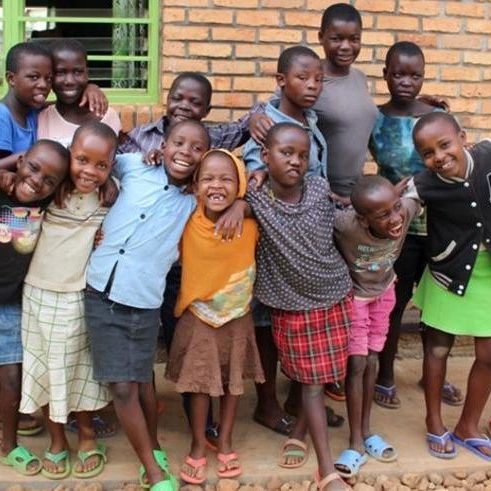
Community Health and Development
As one of HDI’s earliest areas of intervention, HDI strives to improve the health and nutritional status of the Rwandan community, particularly among women, children, economically vulnerable communities, and marginalized groups. HDI offers health services, leads community outreach campaigns, and reaches out through social media campaigns on communicable and non-communicable diseases, nutrition, water, sanitation, and hygiene.
Programs
HDI leads community awareness campaigns on communicable and non-communicable diseases such as Malaria and Hepatitis, through social media campaigns, community outreach and educational videos posted to its YouTube channel, HDI TV.
HDI has been working historically marginalized populations since 2008 through a program known as Community of Potters Health and Development (COPHAD). The program uses multiple approaches to improve the lives of the communities living in Cyarusinge, Bwiza, and Masaka. The aim of this program is to improve health outcomes in the community by conducting nutrition programs, supporting health insurance and school fees, vocational and occupational training programs, and giving micro-loans for community members to start small businesses.
In the area of mental health, HDI offers counseling services for people living with HIV/AIDS, victims of GBV, and members of the LGBTQIA+ community. HDI also offers services such as HIV screening and STI consultations, substance use counseling, and blood group screenings through the Kicukiro and Nyakabanda Centers for Health and Rights.
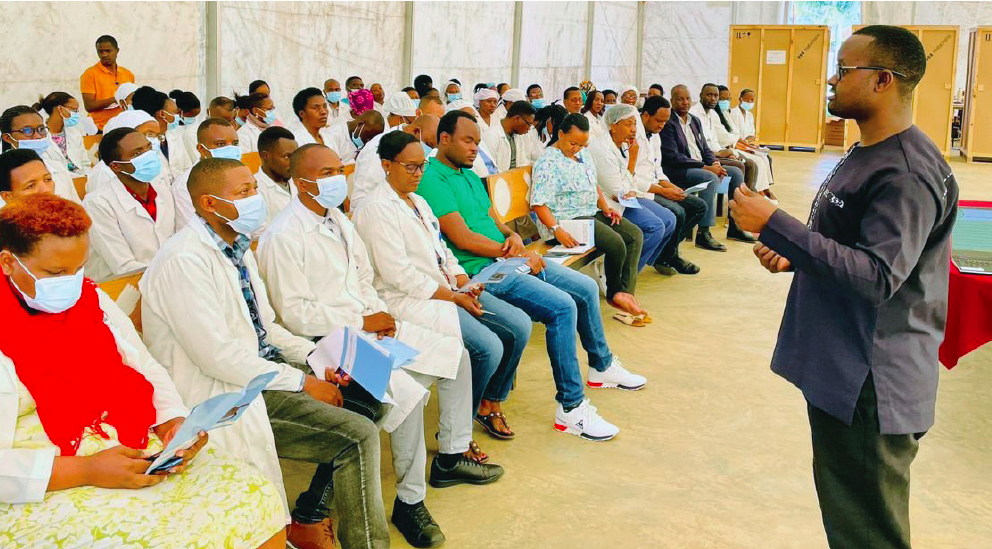
Healthcare Providers in Service
HDI provides refresher trainings on SRHR, sensitization on SRHR laws and policies, values clarification training, and training on provision of stigma-free healthcare services. All of these trainings aim to create a network of healthcare providers who provide friendly services to all people, regardless of social, cultural, or economic background.

